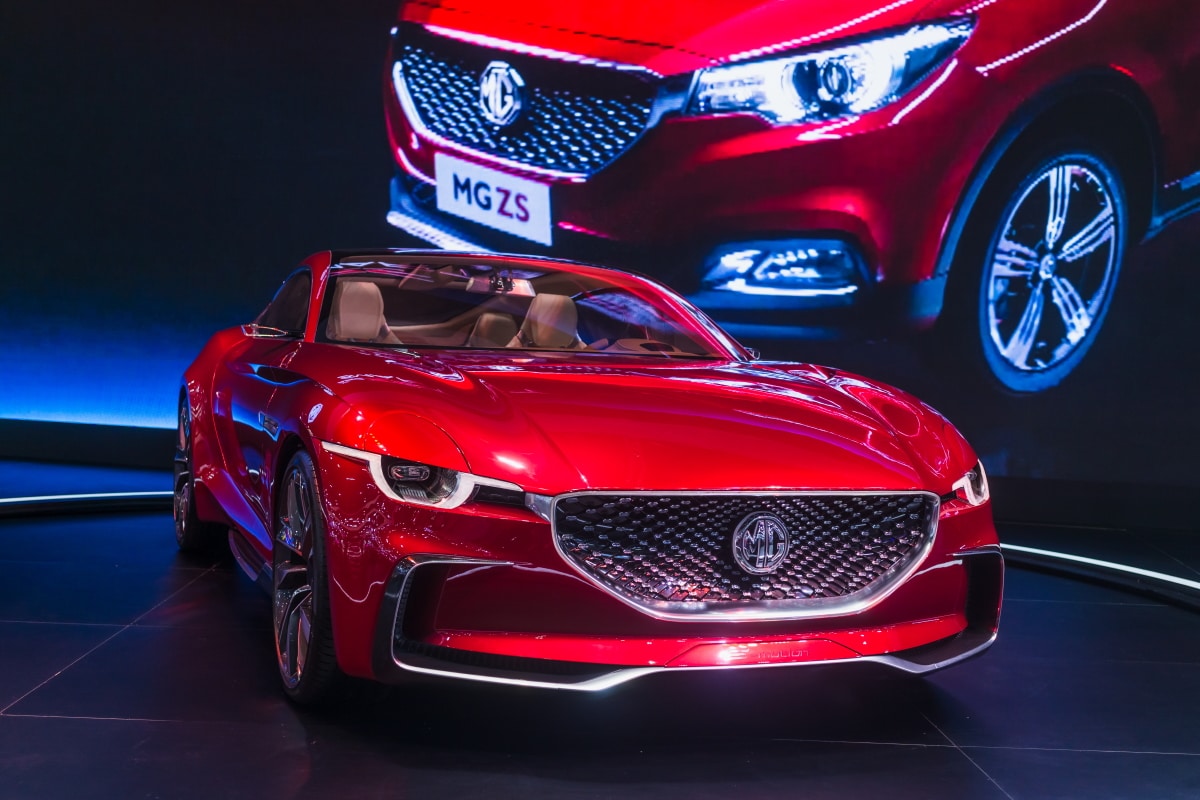China’s car manufacturers push international markets to balance strong competition locally and in Southeast Asia. British-brand MG, owned by China’s SAIC Motors and in partnership with Thailand’s Charoen Pokphand Group, is targeting Thailand with its first-ever pickup truck “Extender”.
Thailand’s automotive market has been dominated predominantly by Japanese manufacturers. But MG has grown its market share, overtaking Japan’s Suzuki for the first nine months of 2019. Its 2.5% market share made it the eighth largest carmaker in the country. The choice of launching pickup trucks, popular in Thailand, was unlikely coincidental.
MG is also targeting the Thai market with electric vehicles (EV) that are around 40% less expensive than the Nissan Leaf. As an incentive it is offering home EV chargers and insurance for free. Nikkei Asian Review reports indicate that MG has already received orders for 1,000 vehicles. As an annual sales target, the manufacturer has indicated 2,000 cars.
China’s car manufacturers have had their eyes on the Southeast Asian market for some time. However, the major players across the region are Japanese, including Toyota and Honda. Yet SAIC Motor has also had some success in Indonesia too, up to 2% of the market there, with its Wuling sport utility vehicles. In Malaysia, China’s Zhejiang Geely Holdings invested in long-struggling local carmaker Proton in 2017.
China car manufacturers looking abroad amidst brutal local competition
For China itself, Beijing Automotive Group has recently described competition as “brutal.” As per Caixin Global, it hopes to maintain 2020 car sales at the same level as 2019. The China Association of Automobile Manufacturers said in December that vehicle sales may drop in 2020 by 2%. The Chinese domestic automotive industry faces constraints from falling economic growth, the impact of trade tensions, and competition from ride-hailing services.
A Ministry of Commerce and China Automotive Technology and Research Centre report out of China, as per SCMP, indicates that China is hoping to boost vehicle exports globally. This is likely in order to combat falling domestic demand and as restrictions on overseas companies are relaxed. Foreign car manufacturers with local ventures may produce in China for the global market. This is a change in strategy for China, as the country used to attract foreign car manufacturers to produce vehicles for the local market. As a result, Ford, GM, BMW and Honda are expected to increase production in China to also serve the global market.
Lifting restrictions to aid the automotive industry
For 2019, China car exports are expected to fall 5%, predominantly due to lower exports to the US. As well as lifting restrictions on foreign companies manufacturing in China, it has removed limits on companies that make EV and hybrid electric vehicles.
The research centre report confirms that China’s domestically owned car companies plan to expand overseas. Chery Automobile, for example, aims to increase an export figure of 126,993 vehicles in 2018 to 500,000 by 2025. The company owns factories in Algeria and Brazil and aims to target the US and European markets.
New energy vehicles are already working well for China. In 2018 its market share of new energy buses in Europe was over 20% and over 60% just in the UK. In the first six months of 2019 new energy vehicle exports jumped 99.3%.
Domestically China may see vehicle sales at least level out. Across Southeast Asia China’s car manufacturers could continue to gain some ground in regional markets but competition is intense. China’s play into international automotive markets further afield is one to watch. Particularly the performance of the country’s new energy vehicles and EVs will be interesting.










 Australia
Australia China
China India
India Indonesia
Indonesia Japan
Japan Malaysia
Malaysia Philippines
Philippines Singapore
Singapore South Korea
South Korea Taiwan
Taiwan Thailand
Thailand Vietnam
Vietnam Germany
Germany Hong Kong
Hong Kong USA
USA Switzerland
Switzerland Singapore
Singapore
 United Kingdom
United Kingdom







